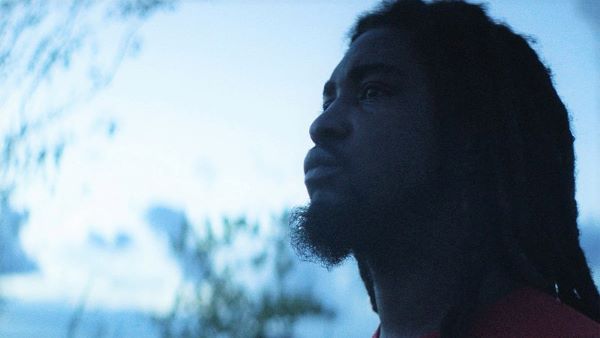![]() Director Margaret Brown’s The Order of Myths premiered at the 2008 Sundance Film Festival and became one of that year’s top films. It could also be considered a prelude to Descendant, another engrossing and in-depth documentary, which debuted at Sundance this year. The earlier film split its focus between two racially segregated Mardi Gras celebrations in Brown’s hometown of Mobile, Alabama. It also revealed that the queen of the Mobile Carnival Association was descended from Timothy Meaher, owner of the last known slaving vessel in the United States, and that the great-grandfather of the Mobile Area Mardi Gras Association’s queen was among the Clotilde’s captives.
Director Margaret Brown’s The Order of Myths premiered at the 2008 Sundance Film Festival and became one of that year’s top films. It could also be considered a prelude to Descendant, another engrossing and in-depth documentary, which debuted at Sundance this year. The earlier film split its focus between two racially segregated Mardi Gras celebrations in Brown’s hometown of Mobile, Alabama. It also revealed that the queen of the Mobile Carnival Association was descended from Timothy Meaher, owner of the last known slaving vessel in the United States, and that the great-grandfather of the Mobile Area Mardi Gras Association’s queen was among the Clotilde’s captives.
In February 2018, the National Geographic Society announced an underwater archaeological expedition to find the schooner’s remnants. According to Kamau Sadiki of the Slave Wrecks Project, more than 40,000 ships were involved in the slave trade, but only five or six of these vessels have been excavated. In 1860, the Clotilde illegally carried 110 enslaved West Africans to the port of Mobile, long after Congress had banned the importation of slaves in 1808. According to local oral history, Captain William Foster threatened to kill the captives if they divulged news of the crossing, and the ship was said to have been set on fire and sunk to prevent it from being found. But where?
Hopefully, it’s not a spoiler to reveal that the Clotilde, the first slave ship found within U.S. waters, was discovered with great fanfare and media attention in 2019. (The schooner was located not by National Geographic but by journalist Ben Raines, along with the owner of an auto repair shop. Raines has just published his account, The Last Slave Ship: The True Story of How Clotilda Was Found, Her Descendants, and an Extraordinary Reckoning.) However, Brown’s film is not about the ship, but what it represents and its significance in the history of Africatown, a Mobile community where most of the captives settled after the Civil War.
She centers her film on Africatown’s descendants, and those she profiles add to the diversity of viewpoints, especially about how Clotilde’s discovery can best serve the community. No one among the many voices here has an answer in terms of reparations and what form they would take or what responsibility the Meaher heirs bear. In tracing the history of Africatown from 1860 to today, Brown and her team broaden their scope by presenting an eye-opening look at environmental racism. Chemical and oil refineries, a lumberyard, and a former paper manufacturing company are among the industries that surround the district—its former downtown is now a freeway. Perhaps more revelatory, the documentary reveals that the land surrounding Africatown is owned by the Meaher family.
Adding to the insightful, unguarded interviews with the descendants are novelist and anthropologist Zora Neale Hurston’s recordings from the late 1920s of songs she learned from Africatown residents. She also interviewed Cudjo Lewis, identified as the oldest survivor of the Clotilda, and filmed him in 1928 when he was around 88. She told his biography in his own dialect, without editing his speech, in Barracoon: The Story of the Last “Black Cargo”, which, according to editor Deborah Plant, resulted in the manuscript being locked in a vault for nearly 90 years. It was only published in 2018. Film history note: Hurston is credited here as the first Black female filmmaker.
Although Meaher family members declined to participate, one descendant of the Clotilda’s captain did. Mike Foster joins a small group to sail to the spot in the Mobile River where the ship’s wreckage was found. In an awkward moment, Foster expresses comfort that Cudjo praised his ancestor as a “good man,” presumably in Barracoon. However, as diver Sadiki of the Slave Wrecks Project points out, good masters and bad masters are all the same.
In the post-screening Q & A, Brown said one challenge in making the documentary was getting Whites to appear in on-camera interviews. (The director is White.) That statement alas reflects where we are as a country in dealing with slavery’s aftershocks.
Barack and Michelle Obama’s production company Higher Ground acquired the Descendant’s worldwide rights during the festival. It’s scheduled to stream on Netflix.







Leave A Comment